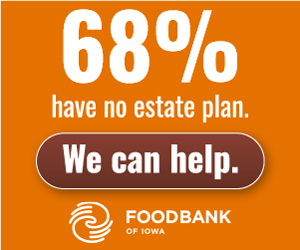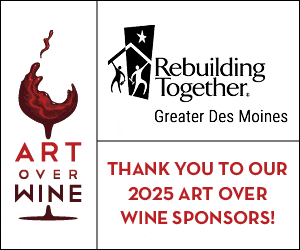Foundation creates program for leaders to leave legacies

The season of giving is here, and one Des Moines philanthropy group is hoping that longtime residents of Des Moines will consider making a special gift to their “lifetown.”
The Greater Des Moines Community Foundation is preparing to officially launch its Lifetown Legacy program at the start of 2005, and is laying the framework now for the new program, which will be the foundation’s “mantra” as it heads into the next few years, says Johnny Danos, the president of the GDMCF. The program is based on the concept of Greater Des Moines as a lifetown – a place where people raise families, pursue business interests and foster friendships; and a place that people should improve for future generations.
“For the last several years, we’ve been educating people on the foundation and how we can help them with philanthropy,” Danos said. “With the Lifetown Legacy program, we hope to motivate more people to leave a legacy to their community by articulating why they should be giving back to their communities.”
Danos said people often remember their alma maters, hospitals and other large institutions in their wills and charitable gifts, but fail to make donations to benefit the community as a whole.
“We’re making the case here for giving back to Greater Des Moines, and the connector is the life experiences that people have here, whether it’s their hometown or not,” he said. “We’re going to be offering people in the community a flexible package of options that they can use to benefit their lifetown, and we think the concept will excite people in giving them new ways to think about Des Moines and reasons why they should be giving.”
Initially, the Lifetown Legacy program will work by individuals creating a permanent endowment through their wills, Danos said. Contributions to the endowment can also be made through charitable remainder trusts, charitable gift annuities, lifetime gifts and donor-advised funds. The experts at the GDMCF will work with donors to develop individual plans detailing how their gifts will benefit the community.
“It’s a donor-focused program,” Danos said. “We can help a donor structure an endowment gift around their passions in a way that will memorialize family or a relative and contribute to those things that they care most about in the community.”
In some instances, the donor will direct their contributions into the foundation’s unrestricted endowment, which the board will then distribute to what it considers to be the greatest needs in the community. The GDMCF has several funds that have already been created to benefit the arts and humanities, and if it does not have a fund to fit a donor’s interest, one can be created. In 2003, the foundation distributed more than $6 million in grants and gifts through its grantmaking programs and various funds, which provided resources and opportunities for children, non-profits and adults in the community.
Danos said the Lifetown Legacy program’s philanthropic planning is one way to ensure that the incredible transfer of wealth resulting from the aging of the Baby Boom generation – a predicted $41 trillion nationally in the next 40 years, a half-trillion of that in Iowa – is not lost to estate taxes, but will be directed into programs to benefit groups in the community.
“The backdrop of all of this is the great wealth transfer that is going on across the country,” he said. “We’re trying to step it up here so that we can capture more of this wealth transfer for our communities and charities instead of having it lost to estate taxes. If people are thinking ahead about what is important to them, they can decide where their money is going to go as opposed to having the government decide.”







